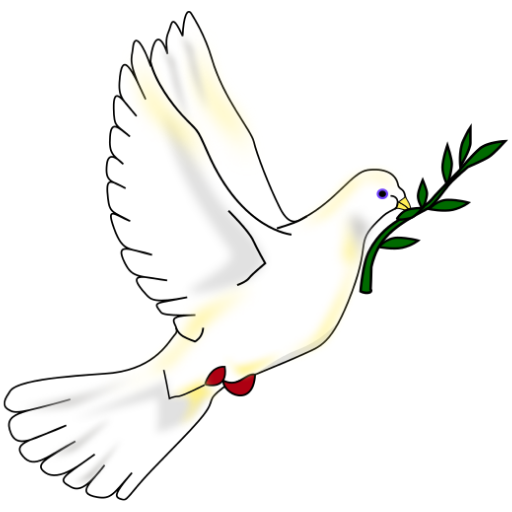
You might be thinking, “Back so soon?”
Last fall, when we were planning our relocation to Costa Rica, my brother said to me, “You’re coming back for Josh’s wedding, right?” I replied, “Of course! I can’t miss my only nephew’s wedding!” As a result, on October 3rd, Tabatha and I boarded a plane in San José bound for Miami. A couple of hours later, we boarded another plane to Philadelphia.
I can’t say I was looking forward to returning to the U.S. To be honest, I was dreading it.
The energy in Costa Rica is so peaceful, laid-back, and friendly. The energy in the United States is the opposite. I didn’t want to be immersed in that energy again. As we were preparing for the trip, I had said more than once to Tabatha, “I don’t want to go back.”
I had to go back. I truly couldn’t miss my only nephew’s wedding, so I psyched myself up for trip. Tabatha, the master planner, had put together a nice itinerary for the week-long sojourn: visiting friends and family, going shopping, enjoying favorite restaurants, and of course, attending the wedding. I kept telling myself that I would enjoy these things.
Well, after only two days in the U.S., I got sick. The night before the wedding, I felt so lousy that I took a COVID test and prayed. We had already visited several friends by that time, and a positive result would mean that we had not only exposed these friends but also that we weren’t going to my nephew’s wedding – the main reason for the trip.
Thankfully, the COVID test turned out negative.
We attended the wedding and the reception dinner. We did a little dancing, but with my being sick and Tabatha’s knee still on the mend, we didn’t do any serious boogeying. After dinner, I’d had enough, so we decided to go back to the hotel room. We missed the fun of them cutting the cake and feeding it to each other; nevertheless, we so thankful we made it. I saw people I hadn’t seen in ages. Tabatha finally got to meet my nephew and his family. Best of all, we got to enjoy watching my brother, the father of the groom, have a total blast!
The day after the wedding, I noticed the tell-tale signs of a sinus infection. I had forgotten all about my fall allergies. When I lived in northeast PA, I started taking Allegra in August to prepare for them. I have gotten sinus infections and bronchitis in October more than once over the years. I didn’t think about the fact that we were returning to the U.S. during the worst time for my allergies. I was unprepared, and my sinuses were like, “What the …?”
A trip to one of those ready care places confirmed my suspicions, and I was prescribed antibiotics.
There were only a couple of rough days. Once, we were having lunch with friends at our favorite diner. I didn’t feel like eating. That’s how lousy I felt. Ask anyone – I always want to eat. I felt so lousy that I excused myself to take a nap in the rental car. Another day, we had a reservation for our favorite seafood restaurant. I wanted to go, but Tabatha correctly pointed out that people might not enjoy eating dinner with my sniffly-sneezy-snotty self sitting nearby, so we got our meal to go. We ate in the hotel room while watching the Eagles football game on TV.
We were really enjoying ourselves. The food was good. The Eagles were winning. Then there was a special news report about the Hamas attack in the Gaza Strip, with images of dead bodies lying in the streets. It was truly terrible, and our hearts go out to those who are suffering in the Gaza Strip.
We weren’t prepared to see those disturbing images during our dinner time. It was prime-time TV. Children could have been watching. There was no warning, so even parents weren’t even given the opportunity to shield their children’s eyes from those images. There was no choice. Yes, we need to know what’s going on, but do we really need to see the graphic details? If we’re that emotionally numb, it’s the media’s fault for feeding us a steady diet of violence and gore.
Truly, the American news media seems to have lost all discretion.
Going back to the U.S. caused some conflicting emotions within me. It was very comforting to once again see and hear English everywhere I went. My brain didn’t have to work so hard to translate. And it was very comforting to enjoy American food. My taste buds didn’t have to acclimate to different flavors and textures. I enjoyed my nephew’s wedding, visiting family and friends, shopping, and eating some of my favorite foods. There was certainly some comfort in being in familiar surroundings again.
It was truly wonderful to see familiar faces in familiar places.
But there was a high price to pay to enjoy those old comforts, and not only for my sinuses. It wasn’t comforting to be bombarded by the media’s fear and negativity. It also wasn’t comforting to have that familiar on-the-road experience of someone obnoxiously beeping their horn and yelling at us for causing them a nanosecond delay. And no matter where we went, there was always the fear in the back of our minds that someone might start shooting.
I concluded that the U.S. is a nice place to visit, but I wouldn’t want to live there again.
Stay Tuned for the next Moving to Costa Rica post: The CAJA Fiasco.











